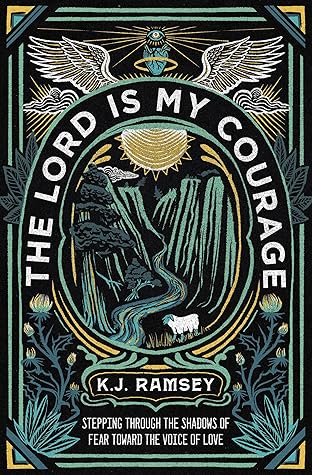More on this book
Community
Kindle Notes & Highlights
by
K.J. Ramsey
Read between
October 12 - October 30, 2022
Cognitive neuroscientist Thomas Fuchs writes that as we reenact the Lord’s Supper together, the church’s collective body memory of receiving Christ’s presence renews our participation in Christ’s life.12
But do not be afraid. God never leaves us without a witness or a name.
Remember this ratio: Your body needs more cues of safety than cues of danger to rise. Stress releases its grip on our bodies when we notice the presence of goodness.
Triggers happen when something has overwhelmed the flexibility of your nervous system.14 Triggers aren’t failures; they’re invitations. Triggers take us to the edge of our window of tolerance for stress and ask us to become larger—not through clenching or controlling but through compassion.
You need glimmers of goodness to feel safe in God’s care, and noticing beauty will take you there.
So, Father in heaven, this we pray: Hallowed—in everything—be your name. Give us this day our daily glimpse. Restore us from stress with our senses—from the scent of pine to the rhythm of the sun setting across the sky. Raise us from fear like the stars, shining brilliant up high. Forgive us for treating your world like something to use up before it burns. Forgive us for forgetting your face hidden in the holy but small—the bees, the hummingbirds, the seeds, the leaves as they fall. They all yearn, along with waterfalls and creeks, to communicate your call. Deliver us from evil’s schemes to
...more
“To confess,” poet David Whyte writes, “is to declare oneself ready for a more courageous road, one in which a previously defended identity might not only be shorn away, but be seen to be irrelevant, a distraction, a working delusion that kept us busy over the years and held us unaccountable to the real question.”
Over the years, I’ve learned to see that my discouragement is often more about dysregulation than about anything being profoundly wrong with me.
May you learn to honor your discouragement as a prompt to rest instead of proof that you will fail. May even your weariness remind you of your worthiness.
Trauma tends to disrupt our body’s path of return to the rhythm of rest. Even when the real danger has stopped, our nervous systems become acclimated to assessing risk. We get stuck in hypervigilance, subconsciously scanning everyone and everywhere for threats through our body’s function of neuroception. Our breath gets stuck there too.
When I silently turn my attention to the most basic function of living—breathing—I can acknowledge my need for the Shepherd to help me rise.17 In and out. Lord [inhale], have mercy [exhale]. Lengthening my exhalation signals to my body that I am more safe than it seems. I am remembering the co-regulating presence of Christ.
Under their watchful eye, I learned that hating my body was the main way to be holy. As a survivor of childhood sexual abuse, it was not difficult to make the logical leap that to hear God, I needed to silence my sensations and make myself as small as possible. It’s not surprising that I couldn’t hear the Spirit of God warning me of danger years later in our spiritually oppressive church, for I had long practiced silencing myself and my body. I thought spirituality was submission, but really I was just practicing suppression.
Both purity culture and power-broking pastors teach us to approach our bodies like commodities to control and use. The gnostic gospel of the American Dream has discipled us in disembodiment. The good news of capitalism has chained us to treating our bodies like machines to master to get and be more.
If Jesus said the church is so strong that the gates of hell cannot prevail against her, I think she can handle her abuses being brought into the light.


